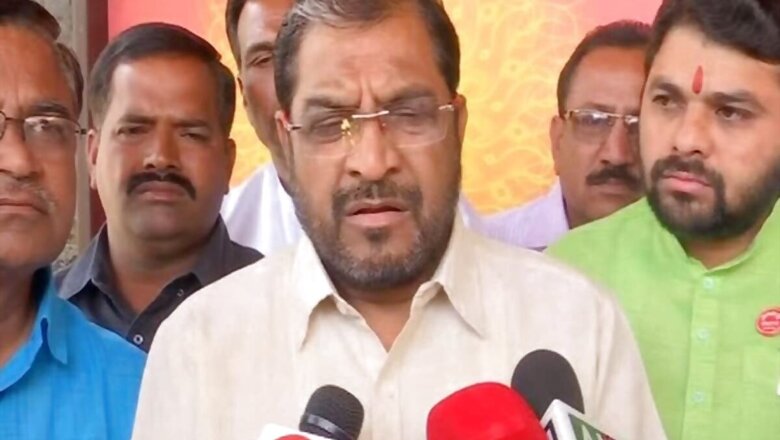
views
With the protestors and the government staring down at each other, many political and farmer leaders have warned about the dangers of anti-national forces exploiting the ongoing standoff as an opportunity to hurt India. Punjab CM Captain Amarinder Singh had said that the ongoing situation is “impacting national security”. The remark was made more than a week ago, but the agitation has intensified further.
In an exclusive conversation with News18, former MP and a tall farm leader from Maharashtra, Raju Shetti points out to a similar warning. Shetti argues why he doesn’t accept the government’s position that the farm laws cannot be repealed and asserts that the ongoing agitation is not contained to the two north Indian states – Punjab and Haryana – alone.
One argument against farmers’ primary demand is that legislations passed so soon by the Parliament have never been repealed in the past.
Never before have laws been passed in such a blatant, anti-democratic fashion either. They broke the democratic convention by imposing the rules on us, without us. Remember how several honourable parliamentarians kept asking for farm bills to be put to vote in the parliament and the manner in which these legislations were passed.
The convention would have been to upload the draft on the ministry’s website, to take suggestions of the farmers into account. A hearing should have taken place following which the bill would have gone to a standing committee or even to standing committee of both houses, as many Parliamentarians had demanded. Then the bill should have been put to vote. None of this happened. They have created this unprecedented situation.
What do you have to say about that criticism that this movement is only restricted, and led by, farmers from just the two north Indian states?
Farmers from down south have no viable means of travelling all the way to Delhi. Our trains are running without general compartments. We tried to come in private vehicles but were stopped at the borders of Uttar Pradesh and Madhya Pradesh. But this doesn’t mean that the farmer-driven movement is not active down south. Everyday there are protests and demonstrations against the contentious laws happening in Maharashtra, Andhra Pradesh, Telangana, Tamil Nadu, Kerala and Karnataka.
Given that either side is not budging from its position, how do you see the situation developing from here?
If this government remains adamant then it will have to pay a heavy political price. Earlier also farmer movements led by Mahendra Tikait and Sharad Joshi have reached the national capital but they did not meet the sort of success that this ongoing movement is seeing.
This is the first time that a successful Bharat Bandh has been called by the country’s farmers. You have to understand the larger implication of that. Never in the history of post-Independent India have farmers rallied so much support from people at large. It’s not as if only opposition governed states are only seeing these protests. This is happening across the country. Whether you choose to notice it or not depends entirely on you.
As both parties become more deeply entrenched in their commitments, won’t it become difficult for the two sides to find a meaningful solution?
Something like this happened in Punjab in the 1980’s. Farmers had come out in protest against traders who were buying their produce below the MSP. Sharad Joshi (he was an economist, an MP and a respected farm leader) had warned that if that agitation were to continue, anti-national forces would exploit the situation and use farmers’ children as fodder. That is exactly what happened because Indira Gandhi at that time shut herself from all meaningful dialogue and logic. The country had to pay a heavy price in the next ten years.
The situation is playing out again, and now PM Narendra Modi is making the same mistake. Anti-national forces will not hesitate to exploit any opportunity they get. The country will suffer a huge toll if the union government does not handle the situation delicately.
One face-saver for both sides could be that the government does not repeal the laws for now but puts them in suspension for a few months, during which an exhaustive dialogue can take place between the ministry and the stakeholders. For now, that’s the only solution I see.
Read all the Latest News, Breaking News and Coronavirus News here
















Comments
0 comment